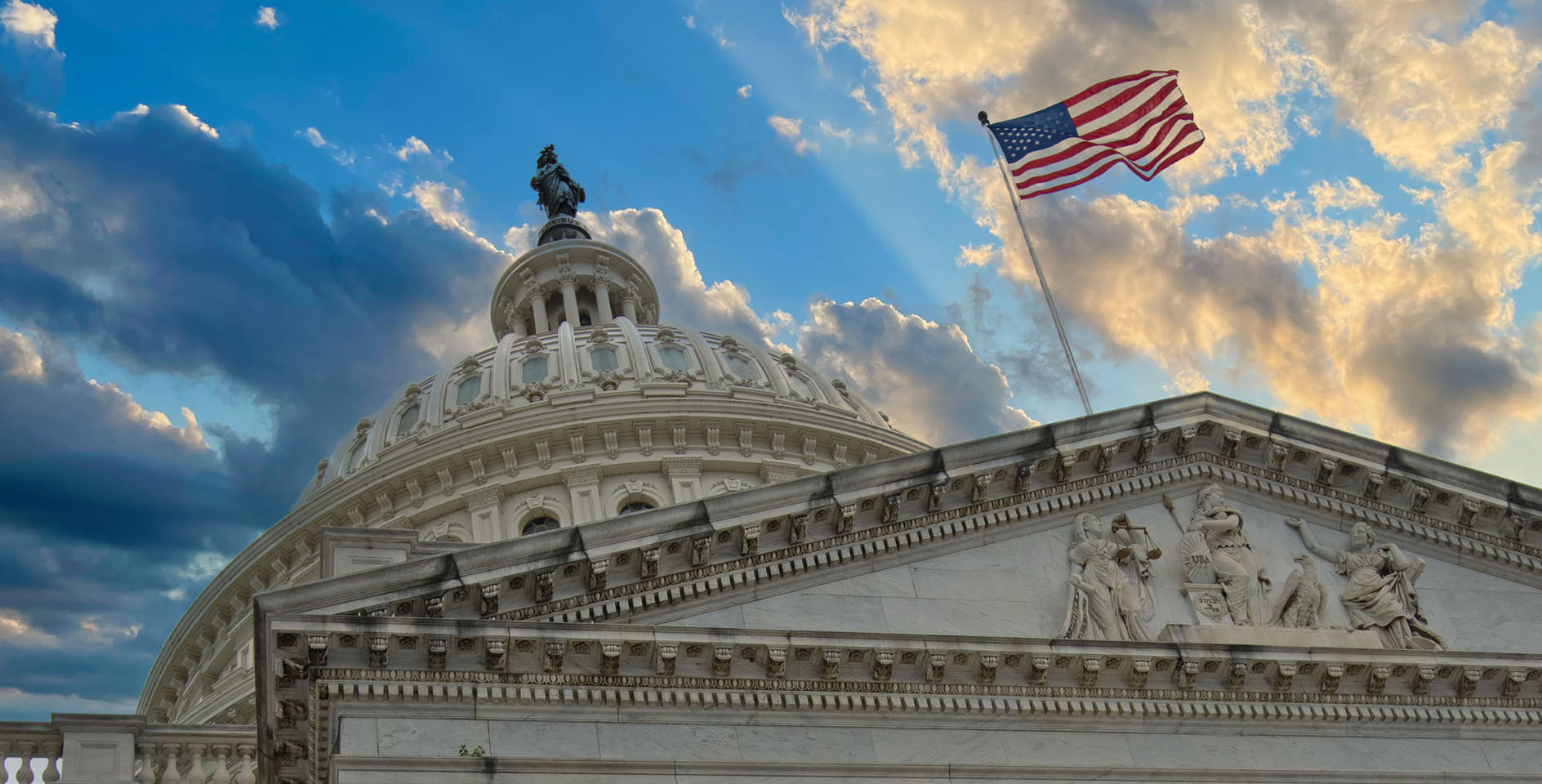One can hardly roam our social media feeds these days without encountering fiery political speech. Engaged citizens, policy advocates, and politicians themselves spend countless hours scrolling and posting their views on whatever hot-button issues seem to be dominating the newsreels, often manifesting itself in angry and demeaning language and accusations against someone somewhere of negligence, malfeasance, or blatant evil. Pointed fingers cast blame on everyone except ourselves, of course, and those within our own tribe. And the apparent consensus is that this sort of social media activity equates to good, productive political engagement.
But is this sort of “engagement” good? And is it productive?
What is political engagement, really?
A question like this immediately brings to mind James Davison Hunter’s challenging book, To Change the World: The Irony, Tragedy, & Possibility of Christianity in the Late Modern World. In a section of the book titled “The Public Witness of the Church is a Political Witness,” Hunter discusses what he calls one of the ironies of our political responsibility. He says,
A final irony has to do with the idea of political responsibility. Christians are urged to vote and become involved in politics as an expression of their civic duty and public responsibility. This is a credible argument and good advice up to a point. Yet in our day, given the size of the state and the expectations that people place on it to solve so many problems, politics can also be a way of saying, in effect, that the problems should be solved by others besides myself and by institutions other than the church. It is, after all, much easier to vote for a politician who champions child welfare than to adopt a baby born in poverty, to vote for a referendum that would expand health care benefits for seniors than to care for an elderly and infirmed parent, and to rally for racial harmony than to get to know someone of a different race than yours. True responsibility invariably costs. Political participation, then, can and often does amount to an avoidance of responsibility (172-173).
Hunter’s argument is that our political participation often amounts to little more than going through the motions and shifting the burden of responsibility from ourselves to our elected officials (or others) by virtue of our vote or social media activity. Rather than welcoming the “costs” of true responsibility, we have a tendency to cast our ballots and then, for the next four years, cast blame on all those who have “mishandled” the responsibilities that we may have been too timid to take on ourselves. It is easy to shirk our responsibilities in exchange for the sort of faux engagement that happens too often online, but this exchange is neither a faithful nor productive one.
So, for Christians, what should productive political engagement look like? There are countless examples that could be named, from volunteering in a local crisis pregnancy center to writing to one’s state representatives to serving on local boards or running for office. The opportunities are too numerous to list. But, there are several “rules of engagement” that should mark the way that we approach our political responsibilities as Christian citizens.
1. Engagement trumps participation
All those who are truly engaged in the political process are participants, but not all political participants are equally or meaningfully engaged. Mere political participation looks much like Hunter’s description, a casting of the ballot only to retreat to our respective silos assuming that we have fulfilled our civic obligations. At that point, we think we are free to participate behind the veil of our computer screens, engaging in the sort of venomous online dialogue that has become the norm. This is political participation.
Being engaged goes further than simple participation. It necessarily involves showing up at the voting booth, but it may also include volunteering at the voting booth. For Christians, as Hunter suggests, it not only entails voting and advocating for pro-life legislation, but it might also include joining the March for Life, volunteering at a crisis pregnancy center, or even “adopt[ing] a baby born in poverty.” The point is, political participation is easy. It costs nothing. But engagement is hard work, and it’s costly.
2. Engagement is costly
Because politics has civic and social ramifications, to be truly and meaningfully engaged in our society’s politics necessarily requires a willingness to be practically inconvenienced. To return to Hunter’s quoted examples, many can identify the potential difficulties of deciding to “adopt a baby born in poverty . . . to care for an elderly and infirmed parent . . . to get to know someone of a different race,” but these and more may very well be what bearing “political responsibility” begets. Convenient or not, these are the costs of being a politically engaged Christian citizen.
But just because engagement is costly does not mean engagement is joyless or that it is not worthwhile. In contrast to the emptiness of our society’s brand of political participation, with its slothfulness and omnipresent outrage, meaningful engagement in the politics of our society is a way in which we may bring the personal implications of the gospel — those good works prepared by God for us to do (Eph. 2:10) — to bear on a culture starving for good news.
Actual, meaningful political engagement is an arena wherein we can exercise the indicatives of the new birth; chiefly, loving our neighbor as ourselves. And if our engagement is to be loving, it must be kind.
3. Engagement should be kind
Contemporary American politics has grown increasingly vicious, and it seems committed to slithering down that dark path. The bulk of this hateful behavior takes place online, where citizens can exercise intimidation behind the security of a screen and can dehumanize their opponents with inhumane and sometimes unconscionable words. This is a form of the political participation mentioned earlier, when our so-called engagement takes place solely in the political theater that is social media.
But for Christians, this sort of activity “should not even be named among us” (Eph. 5:3). If political engagement is chiefly an act of neighbor love, and if love, as defined by the apostle Paul in Scripture, is to be kind, among other things, then there is really no excuse for us to take up our political responsibilities without the kindness that Scripture requires (1 Cor. 13:4). And, lest we misunderstand, kindness is not spineless or weak. On the contrary, a Spirit-driven commitment to convictional kindness in the face of slander and misrepresentation takes courage and resolve. And it might be just the thing to turn the tide of politics as we know it.
4. Kingdom citizens, kingdom politics
Finally, part of the Christian’s vocation in a political system such as ours is to call out what is evil and unjust with prophetic boldness, that is certain. But while some of us are called to be prophets, the New Testament makes clear we have all been commissioned as priests, and while there is some overlap, the ministry of priests often looks quite different from that of a prophet.
As the apostle Peter writes in his first letter to the church dispersed abroad, part of the generic vocation of God’s royal priesthood, the church, is to “conduct herself honorably among the Gentiles” (2:12), to “submit to human authority” (2:13), to “do good” (2:15), to “honor everyone” (2:17), and to “be like-minded and sympathetic, love one another, and be compassionate and humble, not paying back evil for evil or insult for insult but, on the contrary, giving a blessing, since you were called for this” (3:8-9).
The New Testament speaks exhaustively about how the church is to conduct herself in all spheres of life, including in politics. And this much is certain, our citizenship in the kingdom of God is meant to inform, indeed rule, the way that we exercise our American citizenship (or wherever you find yourself). That means being more engaged — and meaningfully so — in the political process, not less. It means before we speak a word of complaint, we should consider how we might constructively resolve what dismays us. It means cultivating a willingness to bear our political and civic responsibilities no matter the cost.
If we wish to see American politics improve, we must reject political participation in its current and unhealthy form. Instead, we must be willing to roll up the sleeves of our priestly garments and, with kindness, invest in the costly work of meaningful political engagement.










